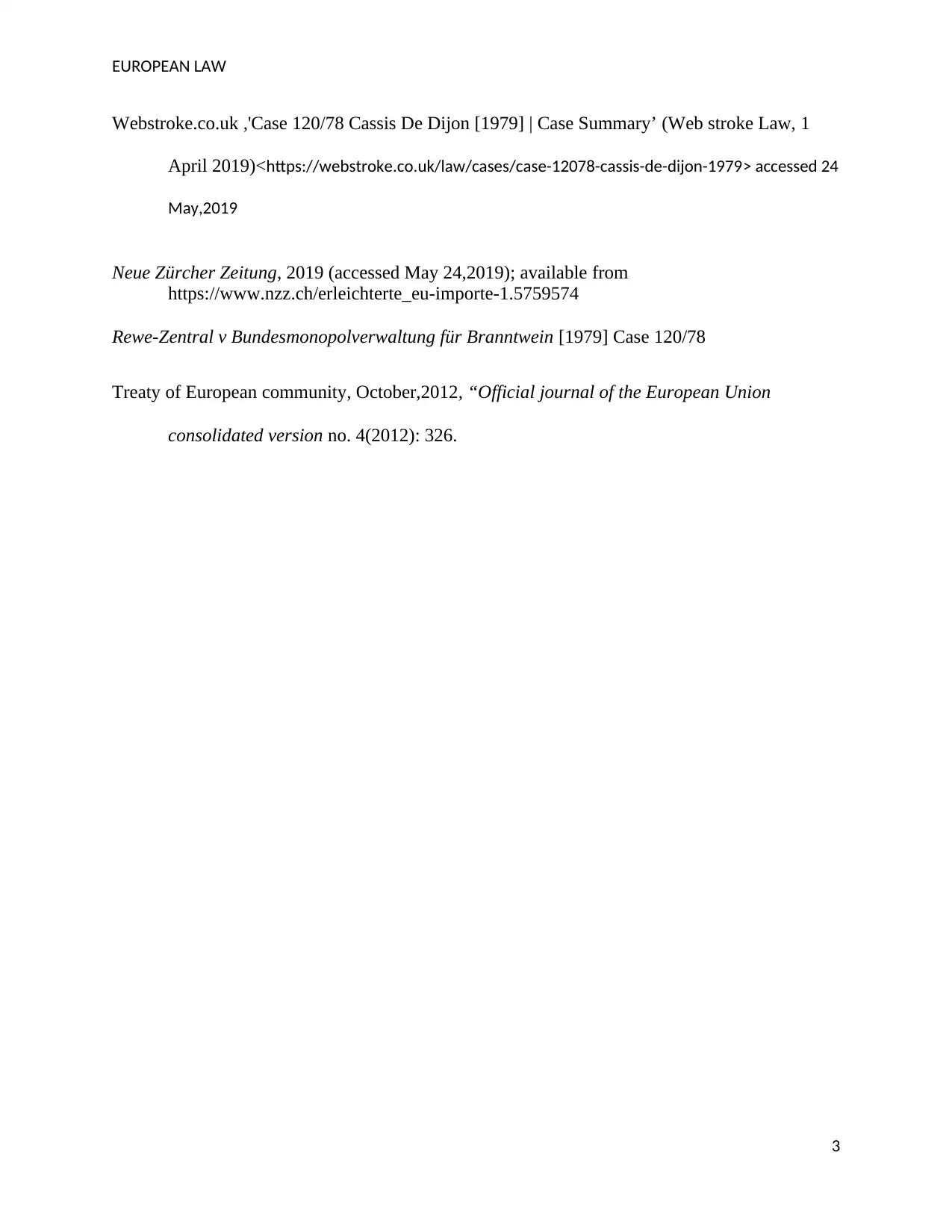Cassis de Dijon Case Study: Impact on European Union Law
VerifiedAdded on 2023/04/04
|3
|395
|427
Case Study
AI Summary
This case study provides an analysis of the Cassis de Dijon case and its impact on European Law. The case revolves around a German liquor importer being denied permission to import Cassis de Dijon due to German law requiring fruit liquor to have a minimum alcohol content of 25%. The European Court of Justice ruled that this breached Article 34 of the Treaty on the Functioning of the European Union (TFEU), establishing the principle of mutual recognition, where a product lawfully marketable in one member state is also marketable in another. The court also introduced the concept of "overriding reasons of public interest," allowing import restrictions under certain non-discriminatory circumstances. The case's significance extends to current trade relations, exemplified by Switzerland's alignment with the Cassis de Dijon principle to enhance trade with EU countries. Desklib provides access to similar solved assignments and case studies for students.
1 out of 3







![[object Object]](/_next/static/media/star-bottom.7253800d.svg)